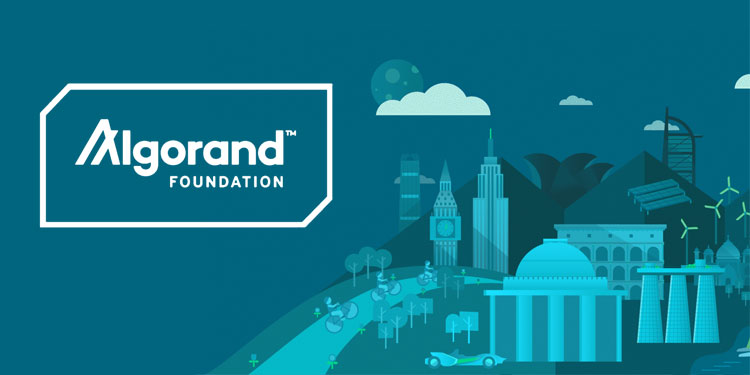The Algorand Foundation, in collaboration with a diverse coalition of fintech, web3, and humanitarian organizations, has initiated the formation of a council aimed at enhancing access to blockchain-based cash assistance during humanitarian crises. This council intends to advise United Nations (UN) agencies and non-governmental organizations (NGOs) on the implementation of blockchain technology for aid payments. Additionally, it plans to develop a roadmap for piloting blockchain-based cash programs in regions experiencing distress.
Increasing Adoption of Cash-Based Assistance
Over the past decade, there has been a significant shift towards cash-based assistance in humanitarian aid, moving away from in-kind or service-based support. According to the CALP Network, a leader in humanitarian cash and voucher assistance, cash-based aid comprised 21% of all international humanitarian aid in 2022, amounting to $10 billion. The proportion of cash-based aid is expected to increase as humanitarian organizations strive to deliver aid rapidly and cost-effectively while navigating complex financial regulations. The council’s projects will explore how blockchain-based payment solutions can address these challenges and enhance the efficiency of aid delivery.
Addressing Infrastructure and Transparency Challenges
One of the primary goals of using blockchain in humanitarian aid is to mitigate the lack of financial and technological infrastructure in crisis-hit regions like Afghanistan. Blockchain technology has the potential to streamline the delivery of cash-based aid, enabling more efficient and scalable responses. Additionally, ensuring transparency in cash aid programs is crucial. Blockchain can provide an immutable record of cash distribution, maintaining privacy for recipients while offering traceability and verification for aid programs, donors, and governments.
Successful Implementation of Blockchain in Aid Programs
The global payment app HesabPay, built on the Algorand blockchain, has already demonstrated the effectiveness of merging blockchain technology with aid delivery. HesabPay supports over 14,000 families in Afghanistan through a collaboration with the United Nations World Food Programme (WFP) and the WFP Innovation Accelerator. This initiative represents the largest humanitarian project ever run on a public blockchain, showcasing the significant impact and scalability of the technology.
The WFP Innovation Accelerator highlighted the success of HesabPay in Afghanistan, noting the substantial impact and scalability of blockchain technology in aid delivery. The initiative aims to extend these innovations globally to revolutionize how aid is delivered.
Support from Key Stakeholders
The Algorand Foundation’s director of impact emphasized the rapid growth of direct cash-based humanitarian assistance, attributing its future potential to the benefits cash provides to recipients. Effective humanitarian payments must be instantly settled, scalable to millions of recipients, and transparent and traceable. Blockchain technology meets these requirements, which is why the Algorand Foundation invested in HesabPay to deliver humanitarian aid payments in Afghanistan without compromising on time or accountability.
Circle Impact’s vice president reiterated their mission since 2021 to empower underserved communities and those excluded from traditional financial systems. Circle Impact is excited to join the Humanitarian Council to foster a new generation of financial inclusion aimed at enhancing humanitarian aid and disaster relief.
Mercy Corps Ventures has been actively deploying real-world blockchain use cases in the humanitarian and development sectors. Over the past four years, they have launched 16 crypto pilots in over 10 countries. Mercy Corps Ventures is now building a Humanitarian Venture Lab to support a pipeline of humanitarian pilots, use cases, and insights, demonstrating how the challenges addressed by the Algorand Foundation are being solved in real-time.
Worldpay’s head of crypto and web3 partnerships underscored the urgent need for faster, more transparent aid solutions in humanitarian crises. Blockchain technology’s unparalleled traceability could revolutionize aid delivery, ensuring funds reach those in need without delay. Matching the speed and efficiency of Worldpay’s transactions could provide life-saving support to millions facing humanitarian crises.
UNDP’s innovation team leader discussed exploring digital payments with Algorand to enhance transparency, speed, and trust in countries lacking a robust banking ecosystem. The focus is on supporting civil society organizations through networks like Tadamon, comprising 4,000 CSOs.
Prominent Council Members
The council includes notable members from various organizations, including Sandra Uwantege Hart from Mercy Corps Ventures, Mercina Tillemann-Perez from Circle Impact, Paula Gil Baizan from PoliSync Centre for International Policy Engagement, Ahmed Zifzaf from Worldpay, Hasan Fallaha from UNDP Syria, Ali Theyab Al-Zuhairi from UNDP Iraq, Robert Pasicko from UNDP, Henri de Jong from Quantoz, Rory Crew from the CALP Network, Nigel Pont from HesabPay, Suzana Moreno from WFP Innovation Accelerator, and Kelly Stablein, an independent humanitarian consultant.
In conclusion, the Algorand Foundation’s initiative to integrate blockchain technology in humanitarian aid aims to enhance efficiency, transparency, and scalability in aid delivery. This initiative is poised to revolutionize how aid is provided during crises, ensuring that funds reach those in need swiftly and effectively.
